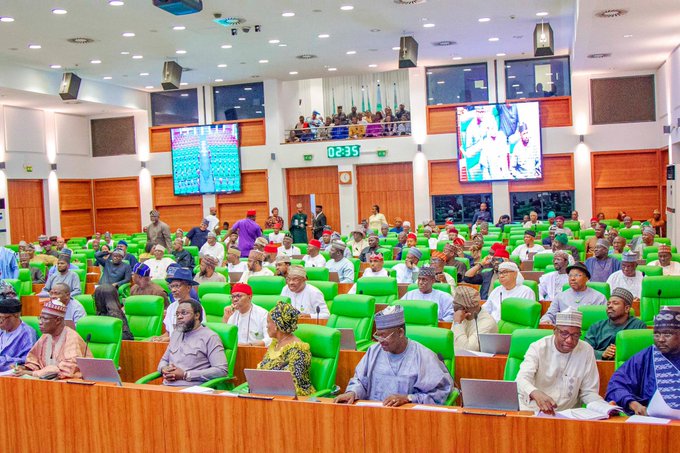In a bold move to address Nigeria’s pressing tax issues, the Speaker of the House of Representatives, Hon. Abbas Tajudeen, has announced that the House leadership is actively engaging with key stakeholders to address the concerns surrounding the four tax reform bills forwarded to the National Assembly by President Bola Ahmed Tinubu.
The reform bills, which are seen as vital to Nigeria’s economic growth, have sparked a series of debates and concerns across different sectors.
According to a statement released by the Special Adviser to the Speaker on Media and Publicity, Musa Abdullahi Krishi, the Speaker has taken significant steps in personally engaging with various groups, including state governors, caucus leaders, and other influential stakeholders.
“Tax reforms are critical for Nigeria’s economic stability,” said Speaker Abbas, emphasizing the need for comprehensive reforms to broaden Nigeria’s tax base.
A Nation in Crisis: Nigeria’s Tax Revenue Crisis
Nigeria’s tax-to-GDP ratio is a glaring indication of the country’s tax challenges. At 10.9% for 2024, it is far below the African average of 15.6%. This low figure is seen as a major constraint to the nation’s economic development. Comparatively, countries like South Africa, with a ratio of 25.4%, and Ghana and Rwanda at 14.1% and 15.1%, respectively, have much higher tax-to-GDP ratios.
Nigeria’s weak tax revenue generation has had wide-reaching effects on government operations, leading to heavy reliance on borrowing. The country’s VAT collection efficiency is also a point of concern. Currently sitting at approximately 20%, Nigeria lags behind nations like South Africa, Equatorial Guinea, and Zambia, all of which boast VAT efficiency rates above 60%.
“We must address these issues to unlock Nigeria’s true economic potential,” Speaker Abbas stressed during his remarks.
Urgency of Reform: A Necessary Path for Nigeria
The Speaker pointed out that Nigeria’s low tax revenue is a significant challenge that must be addressed urgently. He noted that the country’s over-dependence on borrowing to meet financial obligations is unsustainable. “We need tax reforms to reduce our reliance on borrowing and increase our self-reliance,” he said.
He added that reforming Nigeria’s tax system is essential for fostering economic independence and ensuring the country’s long-term financial sustainability.
Nigeria’s present tax structure has been criticized for not being inclusive enough, leaving out many potential tax contributors. With a growing population and expanding economy, a more robust and comprehensive tax system is crucial for meeting the country’s developmental needs.
Consultation and Cooperation: Speaker Abbas Leads Dialogue
To ensure that the reform process is smooth and inclusive, Speaker Abbas revealed that the National Assembly is working closely with President Tinubu’s administration. He said, “We are committed to ensuring these reforms are equitable, effective, and considerate of vulnerable populations.”
The Speaker also highlighted the numerous high-level consultations he has led, emphasizing that the leadership of the House has been engaging with stakeholders to ensure the reforms address concerns raised by the public and key players in Nigeria’s economy.
“I have personally led numerous meetings with state governors and other key stakeholders to foster cooperation and trust,” Speaker Abbas said, expressing optimism about the progress of these consultations.
The Speaker’s hands-on approach has been welcomed by many who believe that open dialogue and collaboration between the National Assembly and the government are essential for the success of such large-scale reforms.
The Road Ahead: Challenges and Expectations
As Nigeria looks ahead to implementing these reforms, challenges remain. While Speaker Abbas remains confident that these challenges will be overcome, there are concerns from various sectors about the potential impact of the reforms on businesses and vulnerable populations.

